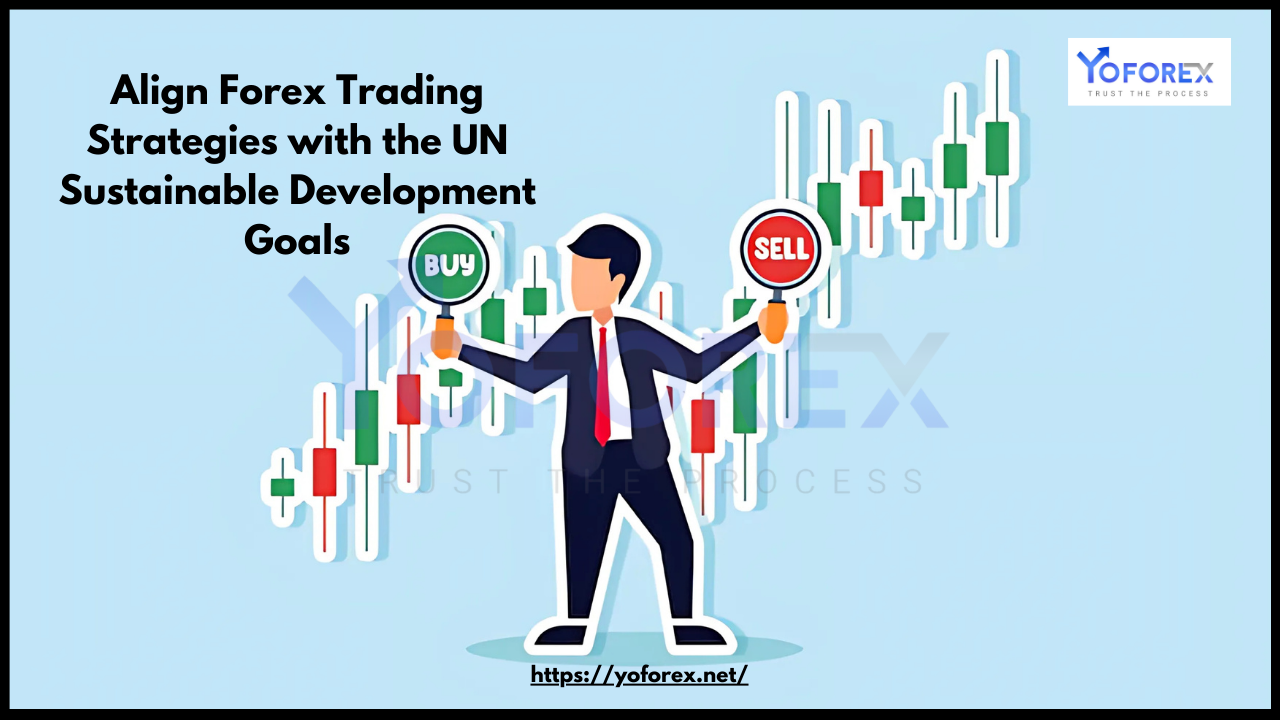Forex trading, the world’s largest financial market, offers significant opportunities for wealth creation. However, in the modern era of responsible investing, forex traders and institutions must align their trading strategies with global sustainability initiatives. The United Nations Sustainable Development Goals (SDGs), a blueprint for a better and more sustainable future, present an ideal framework for guiding ethical and responsible forex trading.
This article explores how forex trading strategies can be aligned with the UN SDGs, focusing on ethical trading, financial inclusion, economic growth, and environmental responsibility.
1. Promoting Decent Work and Economic Growth (SDG 8)
Forex trading can contribute to SDG 8 by fostering sustainable economic growth and decent employment opportunities. To achieve this:
- Encourage Financial Literacy: Providing forex education and resources to underprivileged communities can enable them to participate in the market responsibly.
- Support Ethical Brokers: Traders should choose brokers that promote fair employment practices and economic sustainability.
- Avoid Exploitative Trading Practices: Practices like excessive leverage and high-frequency trading can destabilize economies. Sustainable forex trading should prioritize long-term growth over short-term speculation.
2. Reducing Inequalities (SDG 10)
Forex trading has historically been dominated by institutional investors and high-net-worth individuals. To reduce financial inequalities:
- Enable Access to Trading Platforms: Forex brokers should offer accessible platforms with low deposit requirements, ensuring that individuals from diverse backgrounds can participate.
- Promote Fair Trading Conditions: Regulators and institutions must work to prevent market manipulation and insider trading, ensuring equal opportunities for all traders.
- Encourage Micro-Investing: Fractional trading and micro-lot trading allow small-scale investors to participate in forex trading without significant financial barriers.

3. Responsible Consumption and Production (SDG 12)
Sustainability in forex trading can be enhanced through responsible financial practices and ethical investment strategies:
- Support Green Investment Funds: Some forex traders allocate profits to socially responsible investment funds focused on renewable energy, sustainable agriculture, and clean technology.
- Reduce Carbon Footprint: Brokers and trading firms can minimize their environmental impact by using renewable energy for data centers and implementing paperless transactions.
- Encourage ESG (Environmental, Social, and Governance) Screening: Traders should consider ESG factors when investing in currencies of nations with sustainable policies.
4. Industry, Innovation, and Infrastructure (SDG 9)
The forex market relies on technological advancements for efficiency and accessibility. Aligning with SDG 9 involves:
- Encouraging FinTech Innovations: Technologies like blockchain, AI, and machine learning can improve transparency and fairness in forex trading.
- Enhancing Cybersecurity Measures: Secure trading platforms protect traders from cyber threats, ensuring a safer trading environment.
- Developing Sustainable Trading Tools: AI-driven risk management tools can help traders adopt more sustainable strategies by reducing excessive speculation and financial risks.
5. Peace, Justice, and Strong Institutions (SDG 16)
Forex trading is heavily influenced by political stability and governance. To align with SDG 16:
- Advocate for Transparent Regulations: Traders should support regulatory frameworks that promote fair and ethical trading.
- Avoid Supporting Corrupt Economies: Investors should be cautious when trading currencies linked to countries with high corruption levels, as financial flows can indirectly support unethical governance.
- Participate in Ethical Forex Practices: Trading strategies should discourage currency manipulation and speculation that can destabilize national economies.
6. Climate Action (SDG 13)
The financial sector, including forex trading, has a role to play in mitigating climate change:
- Invest in Climate-Positive Currencies: Some nations are leading in green finance and sustainability. Traders can invest in currencies of countries with strong climate policies.
- Support Carbon-Neutral Trading Platforms: Forex brokers can offset carbon emissions by adopting green technologies.
- Promote Green Forex Trading Certifications: Encouraging forex firms to obtain sustainability certifications can boost environmentally responsible trading practices.
7. Partnerships for the Goals (SDG 17)
Collaboration is crucial for achieving sustainable forex trading practices. To support SDG 17:
- Engage with Sustainable Investment Networks: Traders can participate in global financial sustainability initiatives to learn and adopt ethical trading practices.
- Support Regulatory and Policy Advocacy: Forex traders can advocate for better financial regulations that align with sustainability.
- Collaborate with NGOs and Impact Investors: Forex institutions can form partnerships to promote financial education and responsible trading.
Conclusion
Aligning forex trading strategies with the UN Sustainable Development Goals (SDGs) is not only an ethical imperative but also a long-term strategy for stability and profitability. Traders, brokers, and institutions must take proactive steps to integrate responsible investment strategies, financial inclusion, and sustainability-focused innovations into their trading practices. By doing so, the forex market can contribute to a more equitable, transparent, and sustainable global financial system.
Stay Updated & Download: https://yoforex.net/align-forex-trading-strategies-with-the-un-sustainable-development-goals/
😎 Happy Trading 😎

